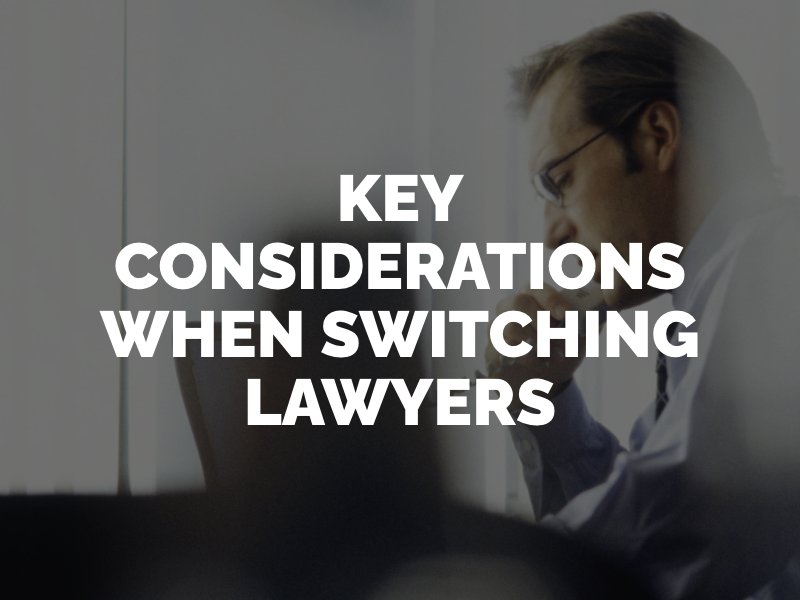What to Know About Switching Lawyers During a Case
You should feel confident in the personal injury lawyer that you choose to represent you during a case in California. Your attorney should have your best interests in mind throughout every step of your claim.
If you feel that your lawyer is not adhering to the correct professional standards in representing you, you have the right to switch lawyers during your case. Find out what this process entails to prepare for what comes next.

How to Switch Your Personal Injury Lawyer Mid-Case
The California Rules of Court allow a client to substitute his or her attorney at any time during an active personal injury case. If you wish to switch to a different attorney, you will need to take the following steps:
- Communicate with your current lawyer. Discuss your reasons for wanting to switch lawyers with your current representation. It may be something that can be resolved, such as better communication or a review of progress made on the case.
- Find a replacement attorney. If you decide you want to switch lawyers, schedule a consultation with a new lawyer to discuss the current status of your case and make sure he or she is a better fit for your needs.
- Submit a Notice of Appearance with the court. Bring this document to your new attorney for his or her signature. Then, submit it to the court with your new attorney. Your former lawyer must also sign and submit a Notice of Withdrawal.
Switching lawyers is not something that should be done lightly. It can have consequences for your case, including some drawbacks. However, it is also a decision that could improve the overall outcome of your claim, depending on the circumstances.
Switching Attorneys Could Delay Your Case
One effect of switching lawyers that you should be aware of is potential delays in the progress of your case. Changing lawyers partway through your case may stall its progress, as your new lawyer will need time to review all of the information and documents related to your case, look through the work your former lawyer already performed, and create a new legal strategy. If you are close to reaching a resolution, it may be best to remain with your current representation.
You Still Need to Pay Your Former Attorney
Another outcome of changing attorneys is having to pay more overall in legal fees. Most personal injury attorneys represent clients on a contingency fee basis. This means the attorney works for no money upfront based on the expectation of being paid from the financial recovery eventually achieved for the client.
When a case is transferred from one attorney to another before it reaches a settlement or judgment, the attorney who has already rendered legal services may not be paid contingency fees. In this scenario, the attorney will be entitled to be paid the “reasonable value” of services provided up until the date of the substitution.
Your Former Attorney Cannot Breach Attorney-Client Privilege
Even after switching lawyers, attorney-client privilege still applies to all private communications that were made between you and your former attorney. Your previous lawyer legally cannot disclose any confidential information about your case to third parties. The State Board of California’s Rules of Professional Conduct prevent your attorney from taking any actions that may negatively affect your case.
Overall, you should trust your instincts when deciding whether you should switch attorneys midway through your case. Changing lawyers is a major decision that should be made with careful consideration of all potential implications. Communicate often with your current and prospective lawyers to ensure the smoothest transition possible.
